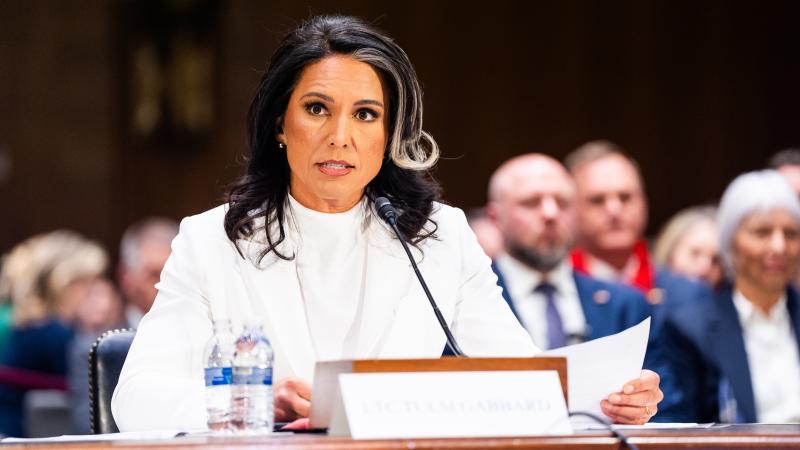Judge orders CDC to quickly turn over millions of COVID vaccine-injury reports by early patients
Agency grossly overstated how burdensome redaction process would be, ignored automated tools common in legal discovery, Trump appointee says. Former NIH director's recent apology shows continuing relevance of data.
The last time a federal judge ordered the Centers for Disease Control and Prevention to turn over data from its COVID-19 vaccine active surveillance program – which enrolled 8.5 million participants from December 2020 to April 2021 – the public learned the earliest recipients reported a surprisingly high rate of listed moderate-to-severe adverse events following the jabs, about one-in-three.
The V-safe mobile app surveys didn't provide checkboxes for chest pain and other cardiac symptoms, requiring users to enter them as "free-text entries" up to 250 characters, despite the CDC including myocarditis and pericarditis as "adverse events of special interest" in the initial V-safe protocol.
Now those 7.8 million entries are coming to the public over the next year under a different Freedom of Information Act lawsuit than the Informed Consent Action Network litigation that prompted the release of checkbox data more than a year ago.
U.S. District Judge Matthew Kacsmaryk scolded the agency throughout his memorandum and order granting the motion for summary judgment by Freedom Coalition of Doctors for Choice, saying the CDC made weak excuses for withholding the free-text entries.
The agency grossly overstated how laborious the redaction-review process would be for a system that assigns a "registrant code" in lieu of identifying information, with one FOIA officer's declaration claiming it would take 59 years for a single analyst to conduct the review, the judge wrote.
It also ignored the availability of "automated assistance" and made impermissible "blanket exemption claims covering a mass of records," he said. The feds are already "in the process of converting" the free-text entries to the standardized code known as Medical Dictionary for Regulatory Activities and have so far released about 5 million records.
Kacsmaryk set a schedule that will require the CDC to turn over a minimum of 390,000 records a month through April, 650,000 a month May-July and 780,000 a month August-January of next year.
"In 2024, American citizens may be more interested in COVID data" because of recent remarks by former National Institutes of Health Director Francis Collins at a Braver Angels event, Kacsmaryk wrote in a footnote explaining why the burden on the agency to produce the records is not "unreasonable."
Collins expressed regret for the "public health mindset" he adopted and that is common in his field, which "attach[es] infinite value to stopping the disease" and "zero value to whether this actually totally disrupts people's lives, ruins the economy, and has many kids kept out of school in a way that they never might quite recover from."
"While 'Trust the Science' became something of a national slogan, the American public’s trust in science and scientists are at an all-time low," and FCDC is simply trying to "further the ideals" of the Biden administration, according to Kacsmaryk, a President Trump nominee who came to the federal bench from the religious liberty law firm First Liberty.
Kacsmaryk's order was released Jan. 5 but reissued Jan. 8 to correct "minor discrepancies," according to a notice from the judge.
Counsel Aaron Siri, who represents ICAN and FCDC, cheered the "incredible decision" Thursday in the 10th installment of his series on V-safe.
In a year-ago installment on the importance of free-text entries, Siri emphasized the value of active monitoring relative to the government's passive and easy-to-dismiss Vaccine Adverse Events Reporting System, which accepts reports from anyone to identify "unusual or unexpected patterns" and is open for review to the public.
V-safe had over 10 million users as of August 2022 who "answer the same questions," letting regulators accurately calculate adverse-event rates, yet the CDC commits a "shell game" by not following up for months with users who reported serious free-text reactions, he said.
ICAN previously obtained a yearlong V-safe record from a woman who reported "no underlying health conditions" but developed "brain swelling and toxic reaction" among other serious symptoms after her Johnson & Johnson vaccine.
She remained on "full disability" and "not medically cleared to drive" at her 6-month v-safe check-in, and had developed new symptoms including the eye condition "fusion with defective stereopsis" by her final one-year check-in.
Siri said the CDC didn't call the woman for more than 200 days and then asked questions already answered by her record, showing it had "no interest in actually assessing" what happened to her.
The agency similarly showed little interest in reading FCDC's FOIA request, Kacsmaryk suggested.
He dismissed the CDC's "form language" asking the group to narrow the scope "to limit the number of responsive records" when the judge said the request was already "as narrow as possible without compromising the meaningfulness of the request," even specifying that FCDC anticipated redactions.
The V-safe data is particularly important for the public to see because COVID vaccine mandates, current and former, are based on the feds' repeated incantations that "COVID-19 vaccines are safe and effective," Kacsmaryk wrote.
"Societal reality hinged on vaccination status" for much of America through at least 2021, the feds still promote "updated" COVID vaccines for everyone 6 months and older and they're on the child and adolescent immunization schedules many school districts follow, the judge said.
The CDC wrongly refused to grant "expedited processing and waiver of fees" to the nonprofit FCDC on the basis that it is not "primarily engaged in disseminating information," ignoring the fact that it was incorporated for the lone purpose of acquiring and publishing the free-text entries, the order says.
The CDC didn't respond to Just the News queries for its response to the order and the judge's criticisms of its reasoning.
While the agency claims its 13 FOIA analysts cannot possibly comb through the voluminous V-safe data to redact "personally identifiable information" (PII) like names and birthdays – not anticipating the advent of booster recommendations that would expand its data collection – the CDC is using misleading figures to exaggerate the challenge, according to Kacsmaryk.
It conflated pages with characters, when the actual body of records is more like "7.8 million tweets," the judge said – noting the 280-character limit for posts on X, formerly Twitter – and 93% of it isn't covered because the CDC says only 7% includes PII.
Even if every entry had PII and used the full 250 characters allowed, that would translate into 650,000 pages at the upper boundary, which is "not surprising" for the "largest federal project in recent history," Kacsmaryk said.
These digital records do not require "particularly complex redactions" and can be handled by "many automated programs utilized by law firms to screen large quantities of documents during discovery."
While he emphasized that FOIA rights aren't dependent on how many FOIA analysts the CDC employs and "convenience is not relevant" to its argument, the judge said even a "heavy" burden on the CDC wouldn't prevent production.
The agency used the data for its own studies that "considered just two weeks" after vaccination at most to judge safety and efficacy, a followup period independent researchers should be able to test, Kacsmaryk said. Vaccine-injured people, parents and medical professionals need the data to make informed decisions for their medical treatment, children and patients.
"With billions of taxpayer dollars expended to develop, distribute, administer, and fund messaging campaigns, Plaintiff assumes a hefty and viable public interest in examining the raw clinical data," the judge said.
The Facts Inside Our Reporter's Notebook
Videos
Links
- surprisingly high rate of listed moderate-to-severe adverse events
- CDC including myocarditis and pericarditis
- prompted the release of checkbox data
- memorandum and order granting the motion
- Francis Collins at a Braver Angels event
- Collins expressed regret for the "public health mindset"
- cheered the "incredible decision" Thursday
- year-ago installment on the importance of free-text entries
- "unusual or unexpected patterns
- yearlong v-safe record
- "fusion with defective stereopsis"
















